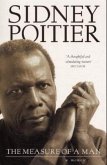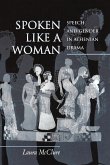Spoken Word in the UK
Herausgeber: English, Lucy; McGowan, Jack
Spoken Word in the UK
Herausgeber: English, Lucy; McGowan, Jack
- Gebundenes Buch
- Merkliste
- Auf die Merkliste
- Bewerten Bewerten
- Teilen
- Produkt teilen
- Produkterinnerung
- Produkterinnerung
Spoken Word in the UK is a comprehensive and in-depth introduction to spoken word performance in the UK - its origins and development, its performers and audiences, and the vast array of different styles and characteristics that make it unique. Drawing together a wide range of authors including scholars, critics, and practitioners, each chapter gives a new perspective on performance poetics. The six sections of the book cover the essential elements of understanding the form and discuss how this key aspect of contemporary performance can be analysed stylistically, how its development fits into…mehr
Andere Kunden interessierten sich auch für
![The Voice Coach's Toolkit The Voice Coach's Toolkit]() Pamela PratherThe Voice Coach's Toolkit161,99 €
Pamela PratherThe Voice Coach's Toolkit161,99 €![Halloween Word Search Fang-tastic Word Puzzles for Adults Halloween Word Search Fang-tastic Word Puzzles for Adults]() Marla MaudsonHalloween Word Search Fang-tastic Word Puzzles for Adults43,99 €
Marla MaudsonHalloween Word Search Fang-tastic Word Puzzles for Adults43,99 €![Halloween Word search Large Print Puzzle Book Halloween Word search Large Print Puzzle Book]() Simba ChloesHalloween Word search Large Print Puzzle Book40,99 €
Simba ChloesHalloween Word search Large Print Puzzle Book40,99 €![The Measure of a Man The Measure of a Man]() Sidney PoitierThe Measure of a Man18,99 €
Sidney PoitierThe Measure of a Man18,99 €![The X Factor finalists (UK series 5) The X Factor finalists (UK series 5)]() The X Factor finalists (UK series 5)26,99 €
The X Factor finalists (UK series 5)26,99 €![Spoken Like a Woman Spoken Like a Woman]() Laura McclureSpoken Like a Woman32,99 €
Laura McclureSpoken Like a Woman32,99 €![Reclaiming Female Authorship in Contemporary UK Television Comedy Reclaiming Female Authorship in Contemporary UK Television Comedy]() Laura MinorReclaiming Female Authorship in Contemporary UK Television Comedy133,99 €
Laura MinorReclaiming Female Authorship in Contemporary UK Television Comedy133,99 €-
-
-
Spoken Word in the UK is a comprehensive and in-depth introduction to spoken word performance in the UK - its origins and development, its performers and audiences, and the vast array of different styles and characteristics that make it unique. Drawing together a wide range of authors including scholars, critics, and practitioners, each chapter gives a new perspective on performance poetics. The six sections of the book cover the essential elements of understanding the form and discuss how this key aspect of contemporary performance can be analysed stylistically, how its development fits into the context of performance in the UK, the ways in which its performers reach and engage with their audiences, and its place in the education system. Each chapter is a case study of one key aspect, example, or context of spoken word performance, combining to make the most wide-ranging account of this form of performance currently available. This is a crucial and ground-breaking companion for those studying or teaching spoken word performance, as well as scholars and researchers across the fields of theatre and performance studies, literary studies, and cultural studies.
Hinweis: Dieser Artikel kann nur an eine deutsche Lieferadresse ausgeliefert werden.
Hinweis: Dieser Artikel kann nur an eine deutsche Lieferadresse ausgeliefert werden.
Produktdetails
- Produktdetails
- Verlag: Routledge
- Seitenzahl: 490
- Erscheinungstermin: 29. April 2021
- Englisch
- Abmessung: 240mm x 161mm x 31mm
- Gewicht: 895g
- ISBN-13: 9780367352523
- ISBN-10: 0367352524
- Artikelnr.: 69983297
- Herstellerkennzeichnung
- Libri GmbH
- Europaallee 1
- 36244 Bad Hersfeld
- gpsr@libri.de
- Verlag: Routledge
- Seitenzahl: 490
- Erscheinungstermin: 29. April 2021
- Englisch
- Abmessung: 240mm x 161mm x 31mm
- Gewicht: 895g
- ISBN-13: 9780367352523
- ISBN-10: 0367352524
- Artikelnr.: 69983297
- Herstellerkennzeichnung
- Libri GmbH
- Europaallee 1
- 36244 Bad Hersfeld
- gpsr@libri.de
Lucy English is a reader in creative writing and head of the Creative Writing Research Centre at Bath Spa University, UK. Jack McGowan is a senior lecturer in creative writing at the University of Worcester, UK.
Foreword by Luke Kennard; Introduction: Setting the Stage: An Introduction
to Spoken Word in the UK - Jack McGowan and Lucy English (Editors);
Section 1: Background to Spoken Word in the UK; Chapter 1: Biting Back
Against the Fascist Octopus: The Story of Apples and Snakes - Russell
Thompson; Chapter 2: Suffering Fools: The survival and adaptation of
British absurd, comic, and satirical traditions in the era of poetry slams
- Steve Larkin; Chapter 3: Black Country, Ay We - Voices from
Post-Industrial Britain - Emma Purshouse and R. M. Francis; Chapter 4: The
New October Poets - Adrian Johnson; Chapter 5: Glasgow, Scotland and Spoken
Word from 1986 to 2018 - Jim Ferguson; Chapter 6: A critical account of the
development of Spoken Word events and settings in Wales in collaboration
with partners in Sweden and Ireland - Mel Perry and Dominic Williams;
Chapter 7: The Democracy of Poetry: The Bristol Spoken Word Scene - Lucy
English; Section 2: Audience and Performer; Chapter 8: The Spoken Word
Experience: affect transmission in contemporary performance poetry - Jack
McGowan; Chapter 9: The Limitations of the Page/Stage Dichotomy: Examining
the page/stage divide - Niall O'Sullivan; Chapter 10: Exploring the
relationship between audience and performer, the implications of the
affective turn in reader-response and the emancipation of the passive
spectator - Scott Martingell; Chapter 11: 'Speak Your Truth': Authenticity
in UK Spoken Word Poetry - Katie Ailes; Chapter 12: Audience as Co-Author:
Poet-Audience Relationship in Performance Poetry - Lauren McNamara;
Chapter 13: Listen to me! The moral value of the poetry performance space -
Karen Simecek; Chapter 14: Audience and performer responses to performing
1-2-1 and intimate poetry - Debra Watson; Section 3: Cultural Exchange;
Chapter 15: Poetic Orality in Working-Class Culture 1840-70 - Simon Rennie;
Chapter 16: She Grrrowls: Feminism in Contemporary Spoken Word - Carmina
Masoliver; Chapter 17: Playing for Affect in Counterpublics: An
Interdisciplinary Investigation into the Transformative Potential of Spoken
Word Hybridity - Katy Wareham Morris; Chapter 18: The Metic Experience of
the Black British Writer: Challenging the Margins - Nick Makoha; Chapter
19: Overthrowing Societal Norms Through the Spoken Word: Benjamin
Zephaniah's Dub Poetry in City Psalms - Ian Hickey; Chapter 20: The Impact
of Malika's Poetry Kitchen on the UK Poetry Scene - Sundra Lawrence;
Section 4: Styles and Techniques; Chapter 21: Fish Out of Water or Creative
Chameleon?: Spoken Word as a form of Social Mobility - Kate Fox; Chapter
22: Style and Technique in Spoken Word - David Hubble; Chapter 23: British
Spoken Word Voice - Hannah Silva; Chapter 24: I thought I was just coming
to watch: Audience Participation in Spoken Word Performance - Rose Condo;
Section 5: Pedagogy of Spoken Word; Chapter 25: How can developing an
Overarching Pedagogical Metaphor defining my own poetics, aid my teaching
of creative writing and 'Spoken Word Education'? - Amy Neilson; Chapter 26:
Spoken Word Education: The Role of a Spoken Word Educator: Pitfalls and
Possibilities - Sara Hirsch; Chapter 27: Searching for Consistency:
Applying Reflective Equilibrium to Performance Poetry Criticism - Ross
McFarlane and Bibi June Schwithal; Chapter 28: Spoken Word as Therapy and
Power - Jhilmil Breckenridge; Chapter 29: Intersections Between Spoken Word
in the UK and US: A Nexus in Dialogue - Helen Johnson and Jacob Sam La
Rose; Section 6: Publicity and Distribution; Chapter 30: Speaking with
Machines & Machines that Speak: Spoken Word & Digital Performance Poetry -
David Devanny; Chapter 31: The Capital of Culture and the Culture of
Capital: The Controversy of Commerce in Spoken Word - Peter Bearder;
Chapter 32: Poetry Slam in the UK - Toby Campion; Chapter 33: More Show,
Less Tell?: How do we talk about spoken word now that it is working on a
theatre stage? - Sharon Clark and Ruth Stacey; Chapter 34: Spoken Word in
Print. Instant Coffee: A conversation with Clive Birnie from Burning Eye
Books -Clive Birnie (interviewed by Lucy English)
to Spoken Word in the UK - Jack McGowan and Lucy English (Editors);
Section 1: Background to Spoken Word in the UK; Chapter 1: Biting Back
Against the Fascist Octopus: The Story of Apples and Snakes - Russell
Thompson; Chapter 2: Suffering Fools: The survival and adaptation of
British absurd, comic, and satirical traditions in the era of poetry slams
- Steve Larkin; Chapter 3: Black Country, Ay We - Voices from
Post-Industrial Britain - Emma Purshouse and R. M. Francis; Chapter 4: The
New October Poets - Adrian Johnson; Chapter 5: Glasgow, Scotland and Spoken
Word from 1986 to 2018 - Jim Ferguson; Chapter 6: A critical account of the
development of Spoken Word events and settings in Wales in collaboration
with partners in Sweden and Ireland - Mel Perry and Dominic Williams;
Chapter 7: The Democracy of Poetry: The Bristol Spoken Word Scene - Lucy
English; Section 2: Audience and Performer; Chapter 8: The Spoken Word
Experience: affect transmission in contemporary performance poetry - Jack
McGowan; Chapter 9: The Limitations of the Page/Stage Dichotomy: Examining
the page/stage divide - Niall O'Sullivan; Chapter 10: Exploring the
relationship between audience and performer, the implications of the
affective turn in reader-response and the emancipation of the passive
spectator - Scott Martingell; Chapter 11: 'Speak Your Truth': Authenticity
in UK Spoken Word Poetry - Katie Ailes; Chapter 12: Audience as Co-Author:
Poet-Audience Relationship in Performance Poetry - Lauren McNamara;
Chapter 13: Listen to me! The moral value of the poetry performance space -
Karen Simecek; Chapter 14: Audience and performer responses to performing
1-2-1 and intimate poetry - Debra Watson; Section 3: Cultural Exchange;
Chapter 15: Poetic Orality in Working-Class Culture 1840-70 - Simon Rennie;
Chapter 16: She Grrrowls: Feminism in Contemporary Spoken Word - Carmina
Masoliver; Chapter 17: Playing for Affect in Counterpublics: An
Interdisciplinary Investigation into the Transformative Potential of Spoken
Word Hybridity - Katy Wareham Morris; Chapter 18: The Metic Experience of
the Black British Writer: Challenging the Margins - Nick Makoha; Chapter
19: Overthrowing Societal Norms Through the Spoken Word: Benjamin
Zephaniah's Dub Poetry in City Psalms - Ian Hickey; Chapter 20: The Impact
of Malika's Poetry Kitchen on the UK Poetry Scene - Sundra Lawrence;
Section 4: Styles and Techniques; Chapter 21: Fish Out of Water or Creative
Chameleon?: Spoken Word as a form of Social Mobility - Kate Fox; Chapter
22: Style and Technique in Spoken Word - David Hubble; Chapter 23: British
Spoken Word Voice - Hannah Silva; Chapter 24: I thought I was just coming
to watch: Audience Participation in Spoken Word Performance - Rose Condo;
Section 5: Pedagogy of Spoken Word; Chapter 25: How can developing an
Overarching Pedagogical Metaphor defining my own poetics, aid my teaching
of creative writing and 'Spoken Word Education'? - Amy Neilson; Chapter 26:
Spoken Word Education: The Role of a Spoken Word Educator: Pitfalls and
Possibilities - Sara Hirsch; Chapter 27: Searching for Consistency:
Applying Reflective Equilibrium to Performance Poetry Criticism - Ross
McFarlane and Bibi June Schwithal; Chapter 28: Spoken Word as Therapy and
Power - Jhilmil Breckenridge; Chapter 29: Intersections Between Spoken Word
in the UK and US: A Nexus in Dialogue - Helen Johnson and Jacob Sam La
Rose; Section 6: Publicity and Distribution; Chapter 30: Speaking with
Machines & Machines that Speak: Spoken Word & Digital Performance Poetry -
David Devanny; Chapter 31: The Capital of Culture and the Culture of
Capital: The Controversy of Commerce in Spoken Word - Peter Bearder;
Chapter 32: Poetry Slam in the UK - Toby Campion; Chapter 33: More Show,
Less Tell?: How do we talk about spoken word now that it is working on a
theatre stage? - Sharon Clark and Ruth Stacey; Chapter 34: Spoken Word in
Print. Instant Coffee: A conversation with Clive Birnie from Burning Eye
Books -Clive Birnie (interviewed by Lucy English)
Foreword by Luke Kennard; Introduction: Setting the Stage: An Introduction
to Spoken Word in the UK - Jack McGowan and Lucy English (Editors);
Section 1: Background to Spoken Word in the UK; Chapter 1: Biting Back
Against the Fascist Octopus: The Story of Apples and Snakes - Russell
Thompson; Chapter 2: Suffering Fools: The survival and adaptation of
British absurd, comic, and satirical traditions in the era of poetry slams
- Steve Larkin; Chapter 3: Black Country, Ay We - Voices from
Post-Industrial Britain - Emma Purshouse and R. M. Francis; Chapter 4: The
New October Poets - Adrian Johnson; Chapter 5: Glasgow, Scotland and Spoken
Word from 1986 to 2018 - Jim Ferguson; Chapter 6: A critical account of the
development of Spoken Word events and settings in Wales in collaboration
with partners in Sweden and Ireland - Mel Perry and Dominic Williams;
Chapter 7: The Democracy of Poetry: The Bristol Spoken Word Scene - Lucy
English; Section 2: Audience and Performer; Chapter 8: The Spoken Word
Experience: affect transmission in contemporary performance poetry - Jack
McGowan; Chapter 9: The Limitations of the Page/Stage Dichotomy: Examining
the page/stage divide - Niall O'Sullivan; Chapter 10: Exploring the
relationship between audience and performer, the implications of the
affective turn in reader-response and the emancipation of the passive
spectator - Scott Martingell; Chapter 11: 'Speak Your Truth': Authenticity
in UK Spoken Word Poetry - Katie Ailes; Chapter 12: Audience as Co-Author:
Poet-Audience Relationship in Performance Poetry - Lauren McNamara;
Chapter 13: Listen to me! The moral value of the poetry performance space -
Karen Simecek; Chapter 14: Audience and performer responses to performing
1-2-1 and intimate poetry - Debra Watson; Section 3: Cultural Exchange;
Chapter 15: Poetic Orality in Working-Class Culture 1840-70 - Simon Rennie;
Chapter 16: She Grrrowls: Feminism in Contemporary Spoken Word - Carmina
Masoliver; Chapter 17: Playing for Affect in Counterpublics: An
Interdisciplinary Investigation into the Transformative Potential of Spoken
Word Hybridity - Katy Wareham Morris; Chapter 18: The Metic Experience of
the Black British Writer: Challenging the Margins - Nick Makoha; Chapter
19: Overthrowing Societal Norms Through the Spoken Word: Benjamin
Zephaniah's Dub Poetry in City Psalms - Ian Hickey; Chapter 20: The Impact
of Malika's Poetry Kitchen on the UK Poetry Scene - Sundra Lawrence;
Section 4: Styles and Techniques; Chapter 21: Fish Out of Water or Creative
Chameleon?: Spoken Word as a form of Social Mobility - Kate Fox; Chapter
22: Style and Technique in Spoken Word - David Hubble; Chapter 23: British
Spoken Word Voice - Hannah Silva; Chapter 24: I thought I was just coming
to watch: Audience Participation in Spoken Word Performance - Rose Condo;
Section 5: Pedagogy of Spoken Word; Chapter 25: How can developing an
Overarching Pedagogical Metaphor defining my own poetics, aid my teaching
of creative writing and 'Spoken Word Education'? - Amy Neilson; Chapter 26:
Spoken Word Education: The Role of a Spoken Word Educator: Pitfalls and
Possibilities - Sara Hirsch; Chapter 27: Searching for Consistency:
Applying Reflective Equilibrium to Performance Poetry Criticism - Ross
McFarlane and Bibi June Schwithal; Chapter 28: Spoken Word as Therapy and
Power - Jhilmil Breckenridge; Chapter 29: Intersections Between Spoken Word
in the UK and US: A Nexus in Dialogue - Helen Johnson and Jacob Sam La
Rose; Section 6: Publicity and Distribution; Chapter 30: Speaking with
Machines & Machines that Speak: Spoken Word & Digital Performance Poetry -
David Devanny; Chapter 31: The Capital of Culture and the Culture of
Capital: The Controversy of Commerce in Spoken Word - Peter Bearder;
Chapter 32: Poetry Slam in the UK - Toby Campion; Chapter 33: More Show,
Less Tell?: How do we talk about spoken word now that it is working on a
theatre stage? - Sharon Clark and Ruth Stacey; Chapter 34: Spoken Word in
Print. Instant Coffee: A conversation with Clive Birnie from Burning Eye
Books -Clive Birnie (interviewed by Lucy English)
to Spoken Word in the UK - Jack McGowan and Lucy English (Editors);
Section 1: Background to Spoken Word in the UK; Chapter 1: Biting Back
Against the Fascist Octopus: The Story of Apples and Snakes - Russell
Thompson; Chapter 2: Suffering Fools: The survival and adaptation of
British absurd, comic, and satirical traditions in the era of poetry slams
- Steve Larkin; Chapter 3: Black Country, Ay We - Voices from
Post-Industrial Britain - Emma Purshouse and R. M. Francis; Chapter 4: The
New October Poets - Adrian Johnson; Chapter 5: Glasgow, Scotland and Spoken
Word from 1986 to 2018 - Jim Ferguson; Chapter 6: A critical account of the
development of Spoken Word events and settings in Wales in collaboration
with partners in Sweden and Ireland - Mel Perry and Dominic Williams;
Chapter 7: The Democracy of Poetry: The Bristol Spoken Word Scene - Lucy
English; Section 2: Audience and Performer; Chapter 8: The Spoken Word
Experience: affect transmission in contemporary performance poetry - Jack
McGowan; Chapter 9: The Limitations of the Page/Stage Dichotomy: Examining
the page/stage divide - Niall O'Sullivan; Chapter 10: Exploring the
relationship between audience and performer, the implications of the
affective turn in reader-response and the emancipation of the passive
spectator - Scott Martingell; Chapter 11: 'Speak Your Truth': Authenticity
in UK Spoken Word Poetry - Katie Ailes; Chapter 12: Audience as Co-Author:
Poet-Audience Relationship in Performance Poetry - Lauren McNamara;
Chapter 13: Listen to me! The moral value of the poetry performance space -
Karen Simecek; Chapter 14: Audience and performer responses to performing
1-2-1 and intimate poetry - Debra Watson; Section 3: Cultural Exchange;
Chapter 15: Poetic Orality in Working-Class Culture 1840-70 - Simon Rennie;
Chapter 16: She Grrrowls: Feminism in Contemporary Spoken Word - Carmina
Masoliver; Chapter 17: Playing for Affect in Counterpublics: An
Interdisciplinary Investigation into the Transformative Potential of Spoken
Word Hybridity - Katy Wareham Morris; Chapter 18: The Metic Experience of
the Black British Writer: Challenging the Margins - Nick Makoha; Chapter
19: Overthrowing Societal Norms Through the Spoken Word: Benjamin
Zephaniah's Dub Poetry in City Psalms - Ian Hickey; Chapter 20: The Impact
of Malika's Poetry Kitchen on the UK Poetry Scene - Sundra Lawrence;
Section 4: Styles and Techniques; Chapter 21: Fish Out of Water or Creative
Chameleon?: Spoken Word as a form of Social Mobility - Kate Fox; Chapter
22: Style and Technique in Spoken Word - David Hubble; Chapter 23: British
Spoken Word Voice - Hannah Silva; Chapter 24: I thought I was just coming
to watch: Audience Participation in Spoken Word Performance - Rose Condo;
Section 5: Pedagogy of Spoken Word; Chapter 25: How can developing an
Overarching Pedagogical Metaphor defining my own poetics, aid my teaching
of creative writing and 'Spoken Word Education'? - Amy Neilson; Chapter 26:
Spoken Word Education: The Role of a Spoken Word Educator: Pitfalls and
Possibilities - Sara Hirsch; Chapter 27: Searching for Consistency:
Applying Reflective Equilibrium to Performance Poetry Criticism - Ross
McFarlane and Bibi June Schwithal; Chapter 28: Spoken Word as Therapy and
Power - Jhilmil Breckenridge; Chapter 29: Intersections Between Spoken Word
in the UK and US: A Nexus in Dialogue - Helen Johnson and Jacob Sam La
Rose; Section 6: Publicity and Distribution; Chapter 30: Speaking with
Machines & Machines that Speak: Spoken Word & Digital Performance Poetry -
David Devanny; Chapter 31: The Capital of Culture and the Culture of
Capital: The Controversy of Commerce in Spoken Word - Peter Bearder;
Chapter 32: Poetry Slam in the UK - Toby Campion; Chapter 33: More Show,
Less Tell?: How do we talk about spoken word now that it is working on a
theatre stage? - Sharon Clark and Ruth Stacey; Chapter 34: Spoken Word in
Print. Instant Coffee: A conversation with Clive Birnie from Burning Eye
Books -Clive Birnie (interviewed by Lucy English)








